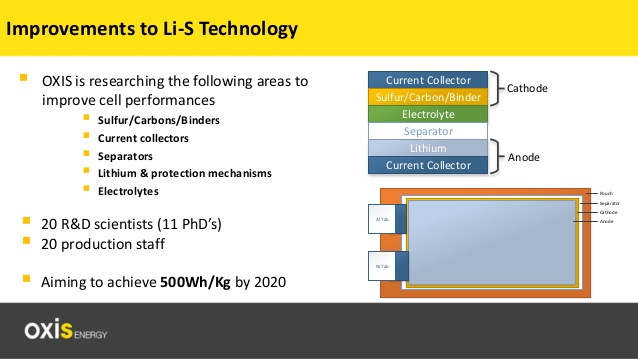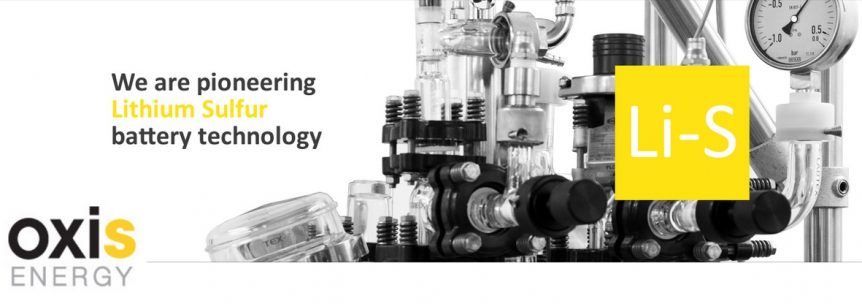Diane Simard, Senior Vice President and a member of the Board of Directors for Bye Aerospace, sends your editor occasional news from that company. The latest involves a collaboration with OXIS Energy in England to develop new Lithium-Sulfur battery cell technology that shows great, and (even better) near-term promise. Ready to start in September, the project will develop cells that will, ”Achieve the higher energy density required for such aircraft,” referring to Bye’s eFlyer 2 and eFlyer 4 light aircraft. A big jump over currently available batteries, OXIS is now evaluating cells that produce 400 Watt-hours per kilogram, with a promised leap to 500 kW-hr by next year. The best lithium-ion cells at the pack level available now manage 260 W-hr/kg. Huw W. Hampson-Jones, CEO of OXIS Energy, discusses his company’s unique approach to battery development and what this portends for future flight and general electric mobility. Explaining OXIS’s applications, he adds, “Aviation is one of OXIS’ target markets, and …
Oxis Energy Hits a Lithium-Sulfur Battery High
That near-mythical 10X (of current lithium cells’ energy density) battery hangs out there on the distant horizon, promising automobiles that can exceed 1,000 miles range, or light aircraft that can carry four at Cessna-like distances. Right now, we have two-place trainers good for an hour’s laps around the circuit, and the hope for improvements soon. OXIS Energy, a UK-based company, has achieved 425 Watt-hours per kilogram at the cell level, and looks to go higher in the near future. Lithium-Sulfur – A Worthy Alternative? Promoters of lithium-sulfur batteries suggest their products have several desirable characteristics and performance boosts that may transcend the limits of lithium-ion cells. Sion Power, for instance, claims availability of their Licerion battery with an even better 500 Watt-hours per kilogram and 1,000 Watt-hours per liter. On the same track, OXIS Energy has announced they have a demonstrated 425 Wh/kg cell, expected to rise to 450 Wh/kg by the end of the year and to 500 by …


